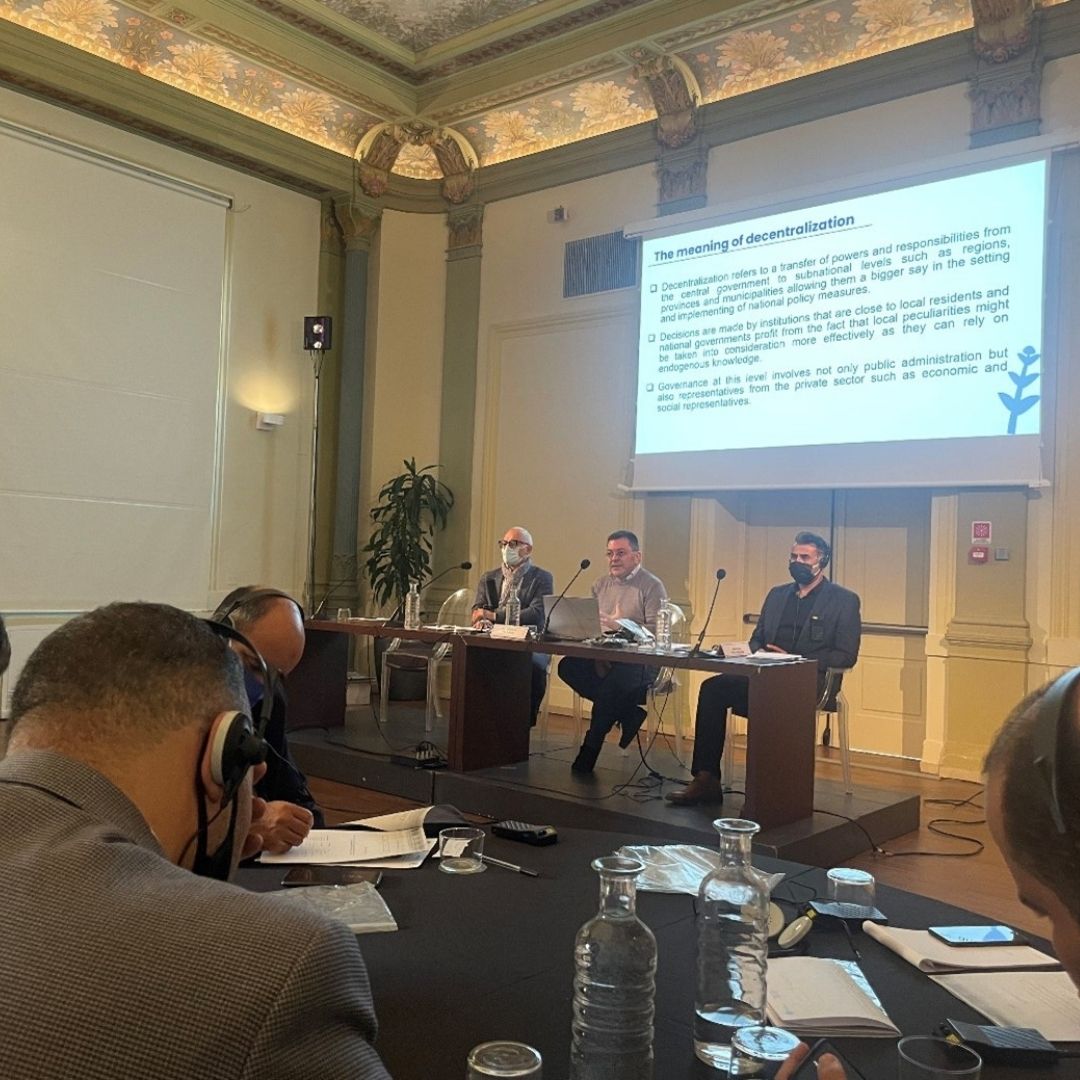The concept of multilevel governance is not new to regional development practitioners who navigate between cooperation and collaboration with various public and private stakeholders in their territory to guarantee the best possible outcome of opportunities. The concept, along with the experience and knowledge gained through these collaborations, were imparted by some of Emilia Romagna’s civil servants to Libyan city managers during a 3-day training held from December 13-15, 2021 in Bologna, Italy.
Specifically, several professors and civil servants were invited to demonstrate how multi-level governance builds capacity to address local needs through illustrating examples and sharing experiences of city managers in Italy. This began with a theoretical explanation of the concept of decentralization and the idea of autonomy, which is the model that more and more European countries are following. It was explained that decentralization is a crucial precedent to ensure the implementation of territorial autonomy which can be take the form of:
- Regulatory autonomy, understood as the ability of local authorities to adopt their own rules (statutory, regulatory and, in the case of the Regions, legislative);
- Political autonomy, as freedom of political self-determination of the objectives to be pursued and the ways to put them into practice;
- Organizational, administrative and financial autonomy.
This theoretical background served as a building block in explaining how the legislative and administrative competences in Italy are divided between central and territorial levels wherein the functions of local authorities in the municipality, metropolitan cities, and provinces can be better envisioned.
The Libyan city managers got to understand how their roles are executed in the framework of the Italian system where city managers play the role of a “community builder”. Essentially, this is a profile that would ideally represent a sort of junction between the political and administrative spheres of the local authority, being responsible for the implementation of the objectives of the institution but influencing, at the same time, the choice of policies regarding the same.
On the third day of training, the Libyan city managers were interviewed to gauge their opinion on the content of the training. Majority of the feedback received related to the knowledge gained through the theoretical and practical examples presented throughout the training. They hope to carry what they have learned through the training and apply it to their own territorial context.
This in-person training aimed at providing city managers of Libyan municipalities with tools for applying the multilevel governance approach to planning and managing services for citizens. It was conducted under the framework of the TAMSALL project, led by ART-ER together with INFORMEST and EURADA. The meeting was an important landmark for the project as the feedback and interactions had with the Libyan city managers help to customize project actions and activities in order to truly address issues in the project’s thematic areas. The ideas presented in this article was the topic of discussion led by Professor Daniele Donati from the University of Bologna. For more information on TAMSALL project actions, please visit our project Facebook page or contact our colleague, Ivana Rae Almora.
